Casey Grange Village | All About Scams
Like it or not scams are becoming more and more present in our day to day lives. Its vital now more than ever to be street smart and learn the basic skills that you can to help identify and respond to scams. It was fantastic to come out and speak to the residents of Casey Grange Village about scams and travel for get online week 2022. These discussions and events are so important at raising awareness and giving residents the tools they need to be safe online.
How are scams different to hacking or viruses?
Scams difference themselves from traditional hacking or viruses as they target the person not the device (Computer, Smart Phone, Tablet). This means that a scammer will attempt to deceive a person into being complicate in the scam and assisting them in their actions. At first this may sound extremely scary! but our involvement in this means that we can build a series of skills to help us identify a scam and prevent it taking place.
In 2022 the most common type of scam is known as the phishing scam, whist this is spelt with a “ph” it shares its meaning with the traditional word fishing, that is to say the scammer will dangle some bait, this may be positive, for example “you have a package waiting or you” or “you have a pending tax back payment” but these may also be negative for example “a illegal payment has been made, login to cancel it”. When we talk about and consider the bait its core idea is that it will want you to take some action from with in the communication. As the end user to prevent the scam we need simply to stop and take no action.

How do i spot scams?
As we know a phishing scam will focus on luring the affected user in with in with bait with the intent being that the user takes some action that the scammer can manipulate. These process is largely the same across all the communication types, texts, emails and phone calls. To identify a scam consider the following items:
- Does the communication want you to take some impediment action?
- Does the communication provide you with a link or button to press?
- Does the communication have bait (A positive or negative action you wish to happen or avoid) ?
If the phone call, text or email meets any of the criteria above, its highly probable that it is a scam! Regardless of the negative or positive bait most organizations will state that something is happening on a text, but not provide a link, for example lets consider this text message communication for the Australian Taxation office below.
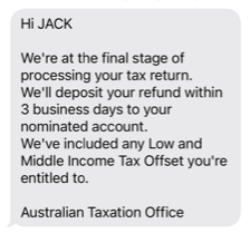
Real ATO text message
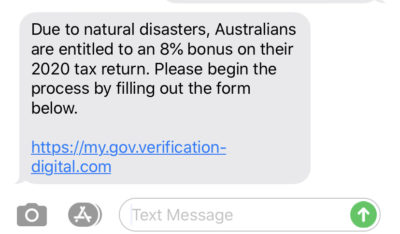
Scam ATO text message
Bendigo bank login scam
Lets now look at another example, this is a scam text message i have received that is claiming my account is under view and that to restore it i must click the link and login (Image shown below). We can see that in this text message we have bait, in this case a negative action that is stating that the account is under review and that i must restore it.
Further more we can then see that we are given a link or some immediate action that we can take to resolve the issue. When receiving communication like this the best course of action would be to not click the link, and to instead call the bank via their phone number and confirm that this is a scam. Remember that all we need to do to prevent the scam is take no further action from the link or message its self, this how ever does not mean that we cannot follow up directly via going to a branch or calling the real bank phone number.
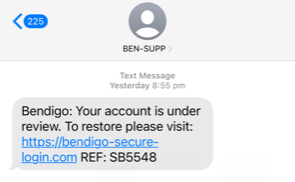
Bendigo Bank Scam Text
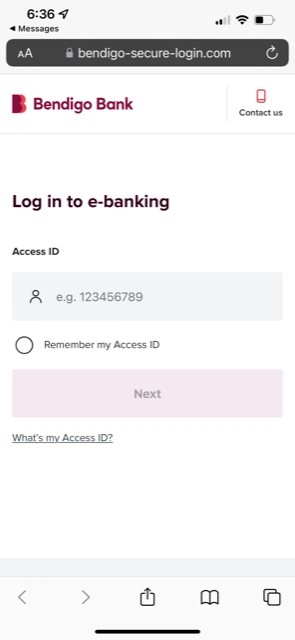
Fake Bendigo Bank Website
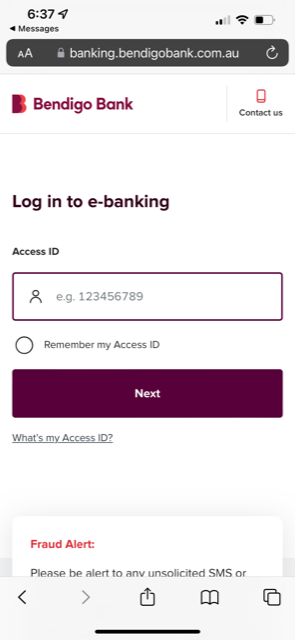
Real Bendigo Bank Website
Summery
- Ask yourself? is their bait that is trying to lure me towards an action?
- Have i initiated this conversation (if a phone call) ?
- Does the other party want me to take some imminent action? for example login to your bank?
- Would their be a negative action taken ageist me if i do not take the action? (threat)

Marthas Cove Village | All About Scams
Author: Jack Harris

